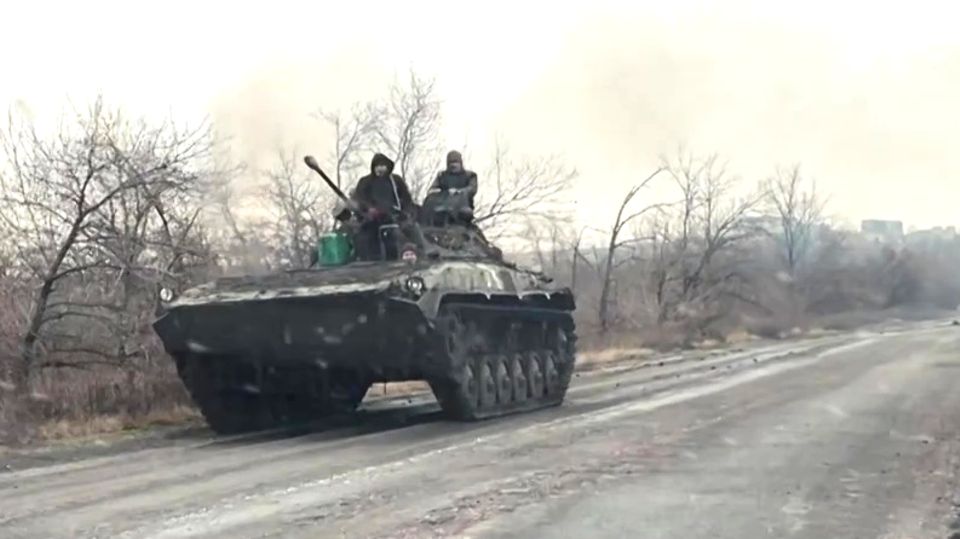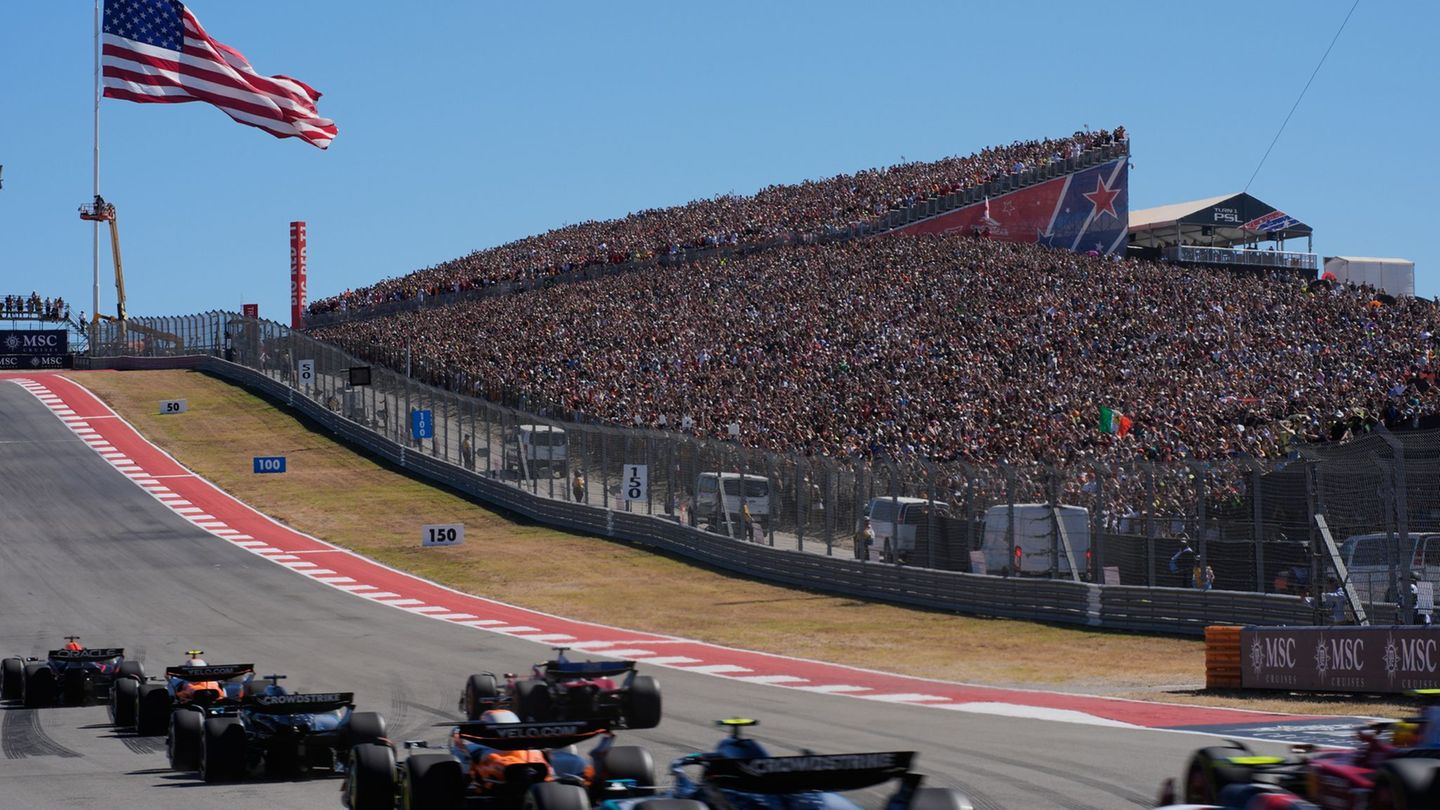Press review
Truth week in the Ukraine crisis: the situation is to be defused at a USA-Russia summit, a meeting of the NATO-Russia Council and OSCE deliberations. The press is skeptical and at the same time warns: “It’s about war and peace.”
A week of intensive discussions on the situation in Ukraine began in Geneva. Since the morning, the USA and Russia have been discussing the build-up of Russian troops on the border with Ukraine and Moscow’s demand for security guarantees from NATO. Russia wants assurances that NATO will not expand further east and a withdrawal of US nuclear weapons from Europe. The US regards the Russian troop deployment as an aggressive act and is demanding Russian steps to de-escalate it. The US side also made it clear that the NATO guarantees demanded by Russia do not exist. The US and allies have threatened massive sanctions if Russia invades Ukraine.
After the talks in Geneva, the NATO-Russia Council will meet in Brussels on Wednesday for the first time in two and a half years. This will be followed by talks on Thursday within the framework of the Organization for Security and Cooperation in Europe (OSCE) in Vienna.
The press comments on the efforts to defuse the Ukraine crisis:
“New York Times”: “The message from the United States and the European Union is clear: an invasion of Ukraine could cost Russia dearly. The price that the sanctions would cause, as well as the loss of Russian lives during an invasion, suggest that President Vladimir Putin will should be content with some degree of diplomatic satisfaction in his demands for a consolidated sphere of power. President Biden and the EU are doing the right thing when they seek negotiations and at the same time face serious consequences if tanks roll. “
But European wars have broken out over minor bluffs, and the Russian march along the Ukrainian border last month is far bigger and more threatening than any saber-rattling in the past. There is no room here for the negligence of the West. Putin should not be given any room for illusions: the West would regard any further military advance as a far greater violation of international norms than annexing Crimea or supporting the separatists in eastern Ukraine. “
“De Telegraaf” (Amsterdam): “The Russians are calling for the withdrawal of NATO troops and materials from 14 countries in Central and Eastern Europe that have been members of the alliance since 1997. In addition, when it comes to Russia, NATO must not expand any further, including countries like Sweden and Finland are meant. These excessive demands go hand in hand with the threat of “military-technical” intervention to restore the “strategic balance.” Russia’s Deputy Foreign Minister has even compared the situation with that in the run-up to the Cuban Missile Crisis of 1962, when the world at one President Putin is looking for a reallocation of spheres of influence in Europe and he is trying to turn back history by rejecting the existing security order. That is simply unacceptable for the West. And the Kremlin knows that too. That he is still like this Acting aggressively and uncompromisingly is threatening and extremely risky. “
“Moscow’s proposals are unacceptable”
“La Repubblica” (Roma): “A crucial week begins in relations between the West and Russia. (…) The bilateral talks with Washington are what Putin, who published his proposals for a double agreement with the US and NATO last December, is really interested The Kremlin leader initially proceeded with a classic mix of instruments: on the one hand, with military deterrence, with more than 100,000 soldiers a few dozen kilometers from the Ukrainian border, who were only partially demobilized, and then with the offer of a negotiation package. If Putin is from Biden Having achieved the status of the primary interlocutor, the core of the problem does not change: Moscow’s proposals are not acceptable, neither for the US, nor for NATO, nor for the Europeans as a whole, no matter how divided they may be in dealing with the Russian problem. “
“Hospodarske noviny” (Prague): “The Western allies must make it clear to Moscow that the demands of Russian President Vladimir Putin are unacceptable. Russia’s neighbors, in this case Ukraine in particular, have the full right to defend their freedom and decide for themselves with whom They want to enter into alliances. The best way for NATO to counter the Russian claims to power is by demonstrating political unity. But now the German Chancellor Olaf Scholz wants a fresh start in relations with Russia. That is exactly the kind of approach and rhetoric that Russian diplomacy can use in their favor to divide the allies apart. “
“The Time” (Brussels): “Russia’s head of state accuses the West of aggressively seizing large parts of Europe in the 1990s and the beginning of this millennium and placing them under the NATO umbrella. Contrary to previous agreements. Putin does not want to lose a single piece of ground . He feels threatened by NATO, which is moving ever closer to its borders. In the coming days, no breakthrough seems to be in sight. The US-Russian talks are at a dead end. Moscow declares that it has little hope for a good outcome , and indicated that the negotiations could be over after just one round. The USA, in turn, warned against a “strategy of confrontation.” (…) As long as the spheres of influence of the parties involved are not clearly defined, there are potential zones of conflict a solution must inevitably be found. In any case, provided that Russia does not invade Ukraine. “

“Rossiyskaya Gaseta” (Moscow): “Neither the assessments of the Western media nor statements by officials prior to the interview give cause for optimism. The reasons are obvious. not the slightest opportunity for quick foreign policy decisions. Washington has repeatedly stressed that it intends to contact a large number of ‘censors’ at home and abroad at every step of the negotiations with Moscow. Second, Washington is striving according to the statements made before the Geneva consultations have not submitted any legally binding documents. “
German press reviews
“Frankfurter Rundschau”: “It is not an encouraging sign when the US and Russia almost rule out making concessions before the planned talks in Geneva on the Ukraine conflict. Obviously, they have not come closer to each other on any of the numerous disputed points before the bilateral meeting. From the week of truth the additional meetings of the NATO-Russia Council and the Organization for Security and Cooperation in Europe (OSCE) will at best be a prelude to lengthy negotiations. This is not surprising. After all, the list of problems is long, ranging from annexation, which is contrary to international law Crimea through Russia to the war in the east of Ukraine and the Russian soldiers on the border with Ukraine to Moscow’s demands for security guarantees from NATO and the stop of its eastward expansion do it. This is not good news. “
“It’s about war and peace”
“Mitteldeutsche Zeitung” (Halle): “It is also clear that any kind of invasion by Russian troops in Ukraine would cool East-West relations for a long time to the lows of the Cold War. So it is a question of war and peace if there are envoys in the coming days East and West meet in Geneva, Brussels and Vienna to discuss de-escalation. Before this “week of truth” begins, the positions of both sides seem incompatible. Russian President Vladimir Putin is calling for an ultimate end to NATO’s eastward expansion There will be no such guarantee, however. After all, free choice of alliances is at the core of the Western value system. The US, in turn, is entering talks with a poisoned offer, suggesting that both sides hold fewer maneuvers in the region and deploy fewer missiles there. The bottom line is that this would force Russia in particular to restrict itself, and Moscow has already shown its disappointment asks. It can’t work like that. “
“Dithmarscher Landeszeitung” (Heide): “The line of conflict within Ukraine runs between a western-oriented, ecclesiastically united, that is, the Ukrainian-speaking western part that recognizes the authority of the Pope and a predominantly Russian-speaking, Orthodox and mostly looking towards Russia eastern part. If all citizens are allowed to vote, there would be a split Probably the logical consequence. If the West stands by its values, then it has to campaign for a free referendum and accept the result – a move that is likely to put more pressure on Moscow than any previous attempt. “
Source From: Stern
David William is a talented author who has made a name for himself in the world of writing. He is a professional author who writes on a wide range of topics, from general interest to opinion news. David is currently working as a writer at 24 hours worlds where he brings his unique perspective and in-depth research to his articles, making them both informative and engaging.




